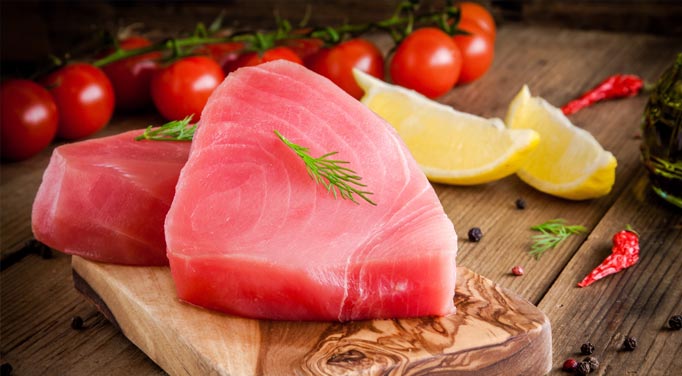 At its most basic, stress is nothing more than the body’s reaction to a stimulus. Stress, generally thought of as bad, (such as during a breakup or job loss) can also be good (think of starting a new job or getting into a new relationship). Stress is a constant, and a critical part of our survival. However, when stress builds up beyond our ability to cope, it can cause long term physical and psychological issues. Adding stress relieving foods to your diet can, surprisingly, help you cope more effectively with all kinds of stress, regardless of the source.
At its most basic, stress is nothing more than the body’s reaction to a stimulus. Stress, generally thought of as bad, (such as during a breakup or job loss) can also be good (think of starting a new job or getting into a new relationship). Stress is a constant, and a critical part of our survival. However, when stress builds up beyond our ability to cope, it can cause long term physical and psychological issues. Adding stress relieving foods to your diet can, surprisingly, help you cope more effectively with all kinds of stress, regardless of the source.
In many people, overwhelming stress stimulates an urge to eat, and without dietary coaching, many seek out stress relieving foods for comfort and energy. They find themselves turning to convenience foods, which can actually worsen the problem instead. Most convenience foods are high in sugar, unhealthy fat, and toxic chemicals, all of which place added stress on the body.
Some people, however, go to the opposite extreme and skip meals. They may become so consumed by the demands of stressful situations that they either forget to eat or feel that they don’t have time to stop and refuel with stress relieving foods. Either way, this often leads to ravenous hunger later in the day, and eating junk food to satisfy hunger fast.
Many people, whether they have an urge to eat, or forget to eat, turn to caffeine to keep them going when what they really need is rest. Drinking coffee to stay awake and keep going during the day, makes it difficult to sleep at night, and leads to an even greater need for caffeine the next day. Excessive caffeine can cause havoc on the entire body, especially the brain and nervous system.
Stress often leads to weight gain, due to a combination of cortisol and unhealthy eating habits. People often turn to fad diets or eliminating certain types of foods, many of them stress relieving foods, depriving themselves of critical nutrients needed to promote healthy function.
The modern lifestyle is filled with stressful situations, and we often find ourselves foregoing sleep for one reason or another, whether we’re cramming for finals, or working late to meet a deadline, preparing a healthy meal sometimes takes time we don’t have. That doesn’t mean we have to fall prey to bad eating habits. There are many healthy, nutritious foods that can relieve stress, that are easy to prepare, and can be eaten on the go. Look for foods that are low in sugar and unhealthy fats, and high in protein, healthy fats, and complex carbohydrates. This doesn’t mean you have to completely eliminate your comfort foods, just realize that comfort foods are not necessarily stress relieving foods.
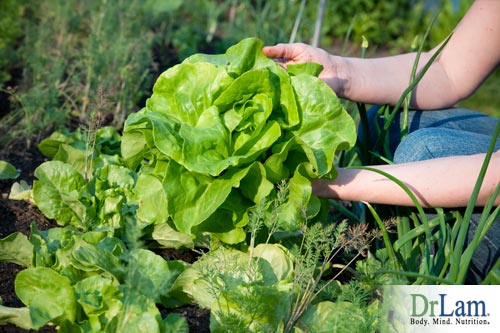 There are two primary systems that govern our stress responses. These are the neuroendocrine system and the metabolic system, collectively known as the the NeuroEndoMetabolic system. These systems function continuously at low levels, and kick into high gear in the face of stressful situations.
There are two primary systems that govern our stress responses. These are the neuroendocrine system and the metabolic system, collectively known as the the NeuroEndoMetabolic system. These systems function continuously at low levels, and kick into high gear in the face of stressful situations.
The neuroendocrine side of this system consists of the adrenal, reproductive system, autonomic nervous system, brain, and heart. The metabolic side of this system consists of the liver, pancreas, immune system, microbiome, and extracellular matrix. The thyroid and digestive system play a part in both neuroendocrine and metabolic sections. All of these organs and systems work together both to kick in our survival instincts to meet the threat or demand, and to halt this process when the threat has been neutralize or the demand met. These are not conscious processes. The body evaluates the stimulus and determines how to respond.
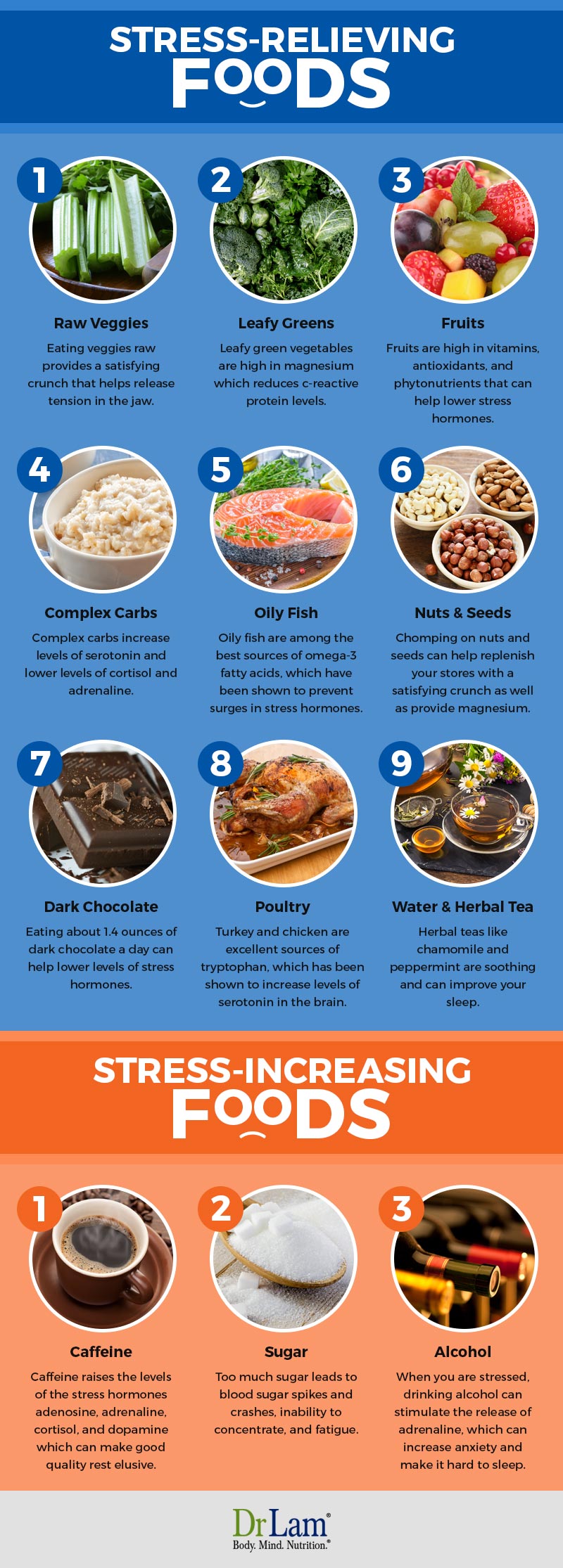
When stress persists, these systems begin to break down and even those stressors that are usually thought of as positive can be overwhelming. Each person responds to stress differently, and how severely this breakdown manifests will depend on several factors, including genetics, lifestyle choices, coping skills, support networks, nutrition, and more.
There are six primary responses to stress, each of which serves a specific purposes and can malfunction in specific ways.
Hormonal - Stress hormones are produced by the adrenal glands, thyroid, and reproductive glands and controlled by the brain. Persistent stress can reduce adrenal function, leading to adrenal fatigue, which can negatively affect thyroid function. Reproduction becomes less important than conserving energy, in addition, libido and fertility decrease.
Metabolic - The metabolism is the system that ensures the cells get the fuel they need when they need it and is regulated primarily by the thyroid, pancreas, and liver. In stressful situations, metabolism increases and glucose is delivered to the brain so we can stay alert. Metabolism depends on thyroid function. When the thyroid slows, so does the metabolism. Sugar cravings are an early symptom of metabolic imbalance.
Neuroaffective - As the hormonal and metabolic systems respond to stress, the central nervous system also becomes involved. This can lead to anxiety, mood swings, insomnia, depression, and brain fog. A healthy stress response will keep you alert when needed, and allows you to slow down when it is time to rest.
Cardionomic - During times of stress, the heart, blood vessels, and lungs fill with oxygen to ready the muscles to fight or flee. Adrenaline and norepinephrine are the primary hormones that stimulate this response, but too much can cause a veritable cascade of responses leading to alterations in blood pressure, heart rate, and breathing rate. It also prevents the stress response from shutting off or allowing the body to rest.
Inflammatory - Inflammation occurs when the body is under stress and is an important part of fighting infection, removing damaged cells and stimulating growth of healthy new tissue. When stress is prolonged, inflammation becomes chronic, and can cause problems in the lining of the gut, which can allow toxins to leak into the bloodstream.
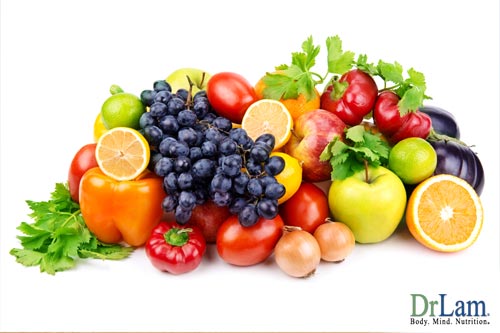 Detoxification - Environmental toxins, metabolites, and toxic by-products, can quickly toxify the body. It is vital to remove these toxins as quickly as possible to keep the liver, immune system, and other organs and systems functioning smoothly, otherwise, toxins begin to accumulate. Prolonged stress leads to premature cell death and excess cellular debris, increasing the load on the detoxification system. Very soon, the cells become unable to produce the energy they need to function optimally, compromising the immune system.
Detoxification - Environmental toxins, metabolites, and toxic by-products, can quickly toxify the body. It is vital to remove these toxins as quickly as possible to keep the liver, immune system, and other organs and systems functioning smoothly, otherwise, toxins begin to accumulate. Prolonged stress leads to premature cell death and excess cellular debris, increasing the load on the detoxification system. Very soon, the cells become unable to produce the energy they need to function optimally, compromising the immune system.
Avoiding stressful situations is only one way to fight stress, and isn’t always possible. An even more effective approach is to give the body what it needs, including nutritious stress relieving foods and rest, so that the body can respond to stress the way it is meant to, and get the rest needed to recover from stressful situations.
When you add more of the following stress relieving foods to your diet, you’ll give yourself more of the steady fuel you need to keep going and meet any problem that comes your way, and the nutrients you need to stay healthy while you do it.
Raw veggies - Fresh produce may well be the most important part of a diet filled with stress relieving foods. Raw veggies are packed with nutrients and antioxidants to help you fight stress. When you eat your veggies raw, you don’t just get the nutrients, they provide a satisfying crunch that helps you release tension in your jaw. Celery in particular has been shown to reduce levels of stress hormones in the blood. Try spreading a celery stalk with a spoonful of peanut butter or hummus to add flavor and protein to your snack, but check the label. Many brands of peanut butter are loaded with extra sugar.
Leafy greens - Green leafy vegetables are high in magnesium, which has been shown to reduce c-reactive protein levels, which have been linked to higher levels of stress and increased risk of depression. Other good sources of magnesium include broccoli, brown rice, beans, dried apricots, and many nuts and seeds. Thanks to modern farming practices and depleted soil, most of us are deficient in magnesium. Any food high in this nutrient is an excellent stress relieving food.
Fruit - Fruits are high in vitamins, antioxidants, and phytonutrients that can help lower stress hormones, and are naturally sweet to help satisfy the sugar cravings that often accompany high levels of stress. Vitamin C, in particular, has been shown to actively reduce cortisol levels. When you’re craving something sweet, fruit is a far more effective stress relieving food.
Complex carbs - There is a reason why so many popular comfort foods are high in carbohydrates. Complex carbohydrates help lower stress by increasing levels of serotonin and lowering levels of cortisol and adrenaline, as well as providing long term energy with slower spikes and crashes. Oatmeal is especially effective at increases serotonin, while whole grains are good sources of B-complex vitamins, vital minerals, and fiber. Complex carbohydrates are excellent stress relieving foods because of the combination of nutrition, steady energy, and comfort they provide.
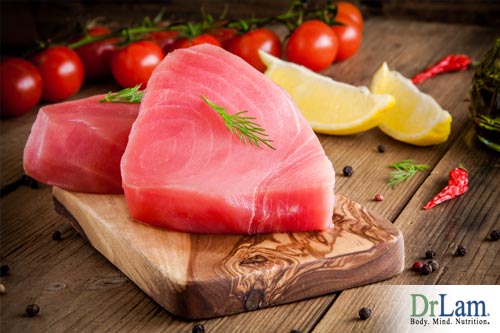 Oily fish - Oily fish like salmon and tuna are among the best sources of omega-3 fatty acids, which has been shown to prevent surges in stress hormones, lower inflammation, and can reduce your risk of several disease, making fish an excellent stress relieving food. Other sources of omega-3s include flax seed, chia seeds, walnuts, and almonds.
Oily fish - Oily fish like salmon and tuna are among the best sources of omega-3 fatty acids, which has been shown to prevent surges in stress hormones, lower inflammation, and can reduce your risk of several disease, making fish an excellent stress relieving food. Other sources of omega-3s include flax seed, chia seeds, walnuts, and almonds.
Nuts and seeds - Stress takes its toll on levels of B-vitamins, potassium, and magnesium. Chomping on nuts and seeds can help replenish your stores with a satisfying crunch. If you buy your nuts or seeds in the shells and shell them yourself, you’re giving your hands something repetitive to do, which can quiet the endless loop of negative and anxiety-provoking thoughts in your head. It can also help you limit how much you eat, as nuts and seeds are high in calories. As a stress relieving food, nuts and seeds are hard to beat.
Dark chocolate - If you’ve always turned to chocolate as a stress relieving food, I have great news: you don’t have to give it up. But choose chocolate that contains at least 70% cocoa, and don’t go overboard. Even dark chocolate is high in calories, but studies show that people who ate about 1.4 ounces of dark chocolate a day had significantly lower levels of stress hormones.
Poultry - Turkey and chicken are excellent sources of tryptophan, a calming amino acid, which has been shown to increase levels of serotonin in the brain. Other good sources of tryptophan include nuts, seeds, fish, lentils, oats, beans, eggs, bananas, and milk. Bananas also increase levels of melatonin to help you sleep. Any food that helps you get better quality sleep is a great stress relieving food.
Water and herbal tea - When you’re stressed out and your body desperately needs rest, caffeine can be overstimulating and, in some individuals, can contribute to dehydration. Herbal teas like chamomile and peppermint are soothing and can improve your sleep, while peppermint and ginger can soothe the gastrointestinal tract and improve digestion.
While you are increasing the above stress relieving foods in your diet, you also want to limit, or steer clear, of foods that increase stress. The following foods can undo much of the progress you make by eating more stress relieving foods:
Caffeine - Ahh, the morning coffee... And the mid-morning coffee... And the mid-afternoon coffee. Caffeine is great at providing a quick boost of energy, but it’s benefits are short-lived, and you end up even more tired than before. If you need caffeine to get moving in the morning, or to keep you focused during the day, it’s a good sign that what your body really needs is rest. Caffeine raises levels of the stress hormones adenosine, adrenaline, cortisol, and dopamine which can make good quality rest elusive.
 Sugar - Sugar contains absolutely no nutritional value at all and should not be a significant part of anyone’s diet. Too much sugar leads to blood sugar spikes and crashes, inability to concentrate, and fatigue, It also places added strain on the pancreas, increasing the risk of developing diabetes. It might make you feel good for a bit, but sugar is not a stress relieving food.
Sugar - Sugar contains absolutely no nutritional value at all and should not be a significant part of anyone’s diet. Too much sugar leads to blood sugar spikes and crashes, inability to concentrate, and fatigue, It also places added strain on the pancreas, increasing the risk of developing diabetes. It might make you feel good for a bit, but sugar is not a stress relieving food.
Alcohol - There is some controversy over alcohol and its effects on the body. There are many who say a drink or two a day helps them relax, and studies have shown a glass of red wine is good for your heart. When you are stressed, however, drinking alcohol can stimulate the release of adrenaline, which can increase anxiety and make it hard to sleep.
© Copyright 2017 Michael Lam, M.D. All Rights Reserved.
